
Testosterone, Total
Testosterone, Total
The total testosterone test determines the amount of both attached and free testosterone in the blood. Testosterone is a sex hormone present in both males and females that is responsible for developing and maintaining reproductive characteristics. In males, it is essential for the development of male sexual characteristics such as a deeper voice, muscle development, and hair growth. Females have small amounts of testosterone in general that influence the overall growth and development of muscles and reproductive tissues.
The total testosterone test is used to measure free testosterone and bound testosterone. Bound testosterone is testosterone that is attached to proteins like albumin or Sex Hormone-Binding Globulin (SHBG). This test is more commonly used among other testosterone-related tests.
The total testosterone test is used to diagnose various health conditions in children and adults. Thus, getting your total testosterone test is recommended to prevent various hormonal disturbances like erectile dysfunction, fertility problems, osteoporosis (weakening of bones), etc
Symptoms of low testosterone levels in males
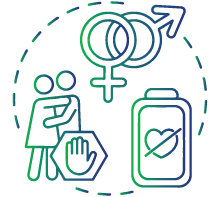
Low sex drive

2. Erectile dysfunction (difficulty in getting a penis erection)

Enlarged breasts

Lack of facial or body hair

Weakening of bones
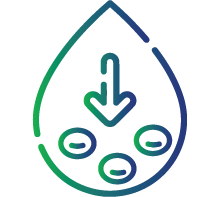
Anaemia
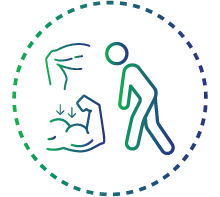
Loss of muscle mass
Symptoms of high testosterone levels in females

Increased facial and body hair

Hair loss on the head
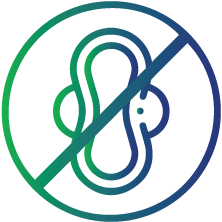
Irregular or no menstrual periods

Voice changes
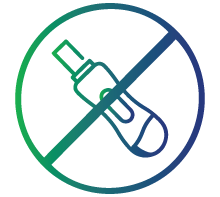
Infertility
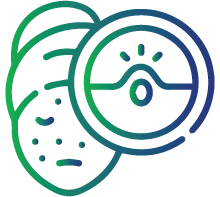
Acne
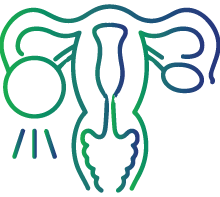
Polycystic Ovary Syndrome (PCOS)
Who should get tested?
The total testosterone test is recommended in the following conditions
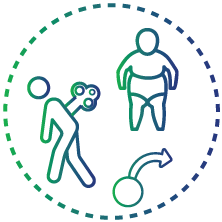
In diagnosing the cause of symptoms due to abnormal testosterone levels
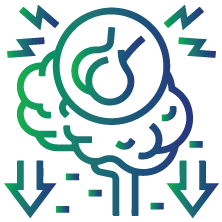
To find out the cause of early puberty or delayed puberty in children and teens
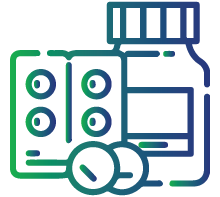
Monitoring the health of transgender men receiving masculinizing hormone therapy
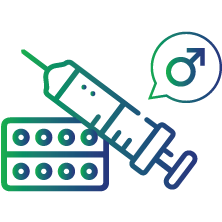
To monitor medications that may affect testosterone levels
Test preparation
A total testosterone test is usually done early in the morning, when testosterone levels are high. Some medications might affect testosterone levels, so be sure your doctor is aware of any prescription drugs, over-the-counter medicines, or dietary supplements you are taking
Interpretation of the Test Results
The total testosterone range may vary based on age, gender, and from lab to lab. The normal reference range of both total and free testosterone is given in nanograms per decilitre.
Total testosterone range
|
Parameters |
Reference range of total- testosterone levels |
|
240-950 ng/dL |
|
|
Total testosterone in females (adult) |
8-60 ng/dL |
Free testosterone range
|
Parameters |
Reference range of free-testosterone levels |
|
Free testosterone in males(adult) |
2.29-20.7 ng/dL |
|
Free testosterone in females(adult) |
0.13-1.08 ng/dL |
Deviation from normal levels indicates the following:
· In males, low levels of total testosterone may indicate chronic kidney or liver disease, damage to the testicles, pituitary gland disorder, benign tumours, alcohol use disorder, and certain genetic disorders like Klinefelter syndrome.
· In males, high levels of total testosterone may indicate steroid use, a tumour in the testicles, or adrenal gland disorders like congenital adrenal hyperplasia (CAH).
· In females, extremely low total testosterone levels may be a sign of an adrenal gland, a pituitary gland, or an ovarian disorder.
In females, high total testosterone levels may indicate PCOS, ovarian cancer, and pituitary gland disorders
FAQs
How is the total testosterone test performed?
During this blood test, a healthcare professional will take a small amount of blood from a vein in your arm using a small needle, which is collected in a test tube or vial. This procedure takes less than five minutes
What are the risks associated with the total testosterone test?
There are no known risks associated with this test. During a blood test, one may experience minor pain or bruising where the needle was inserted, but most symptoms will subside quickly
What is the turnaround time (TAT) for the result of a total testosterone test?
The total testosterone test result is usually available within 2–3 working days. Test results might be mailed or made available online through health portals. Your doctor might also contact you by phone or email to go over your test findings or to arrange a follow-up appointment
What additional tests might I require along with total testosterone testing?
Healthcare providers might ask for additional tests like – estrogen test, dehydroepiandrosterone sulfate test, prolactin test, follicle-stimulating, luteinizing, or anti-Mullerian hormone test, depending on the reason why a testosterone test was recommended
What might affect my total testosterone test results?
Obesity, alcohol consumption, diabetes, and herbal supplements might affect your testosterone levels. Conditions like PCOS in women can affect the test result. So, it is recommended that you consult your healthcare provider before undergoing the test

